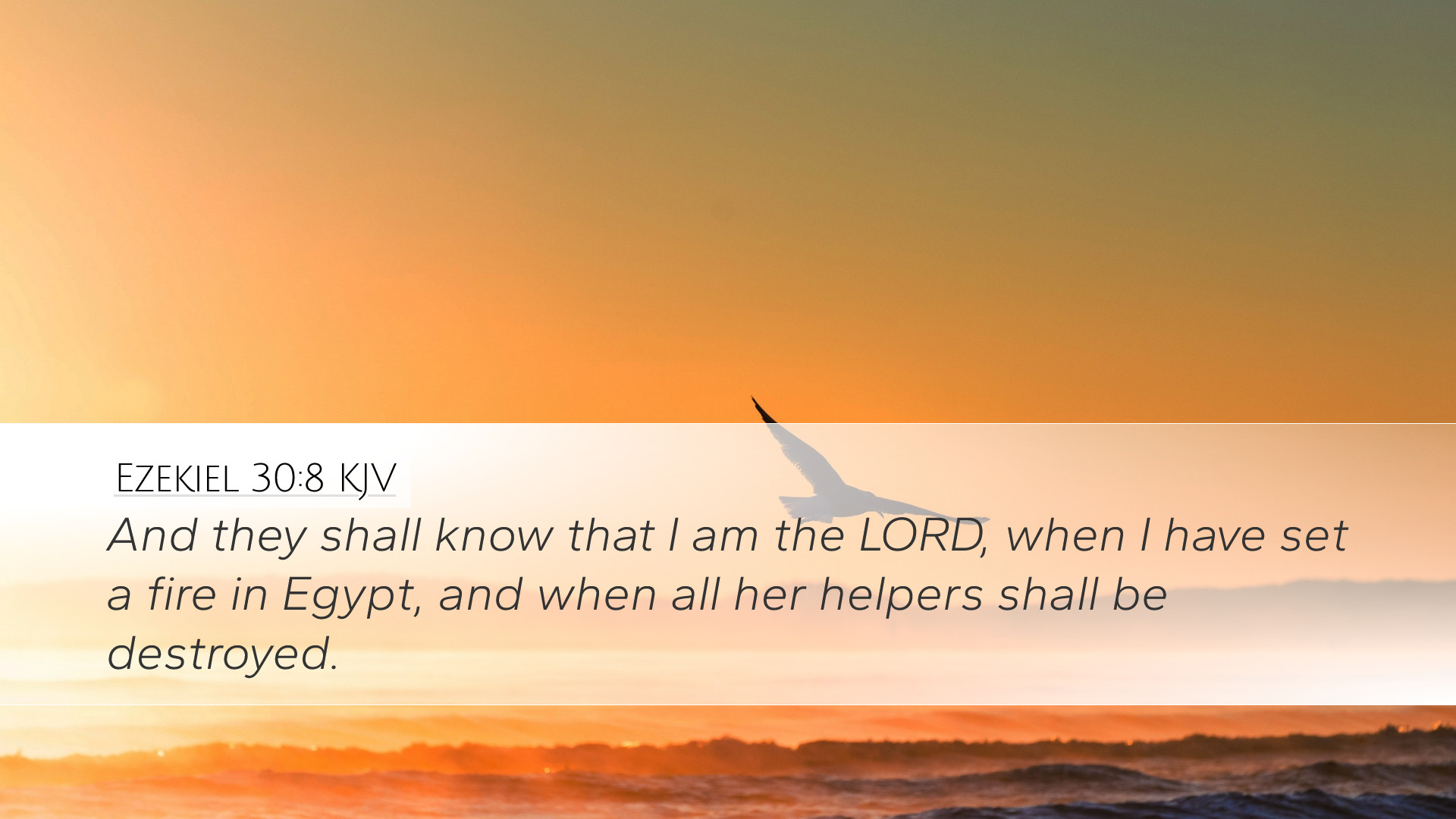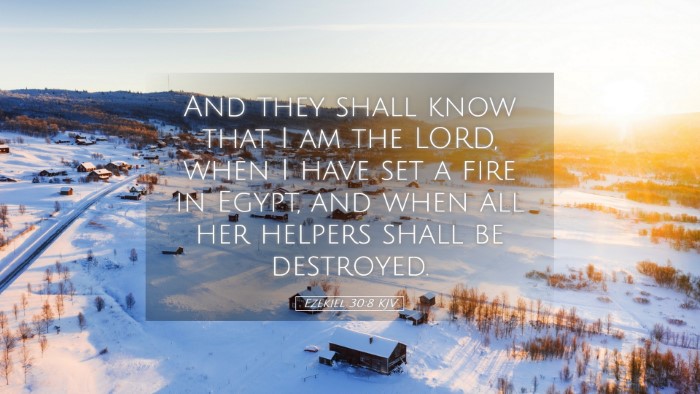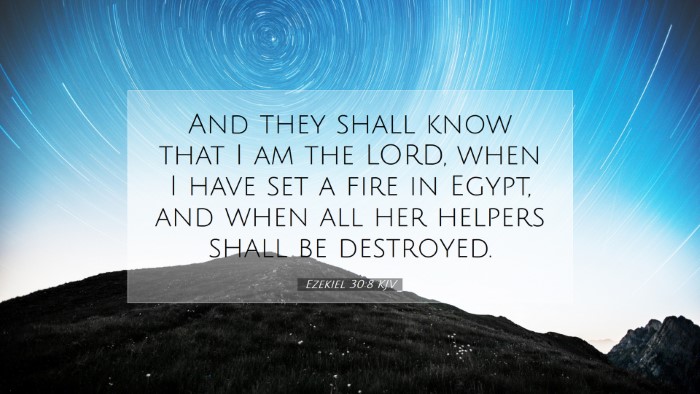Ezekiel 30:8 - A Commentary
Verse Text: "And they shall know that I am the LORD, when I have set a fire in Egypt, and when all her helpers shall be destroyed."
Introduction
The book of Ezekiel serves as a prophetic declaration against nations that opposed Israel and engaged in idolatry and violence. Ezekiel 30:8 is part of a series of prophecies concerning Egypt, emphasizing the divine judgment that would sweep through the nation. This commentary draws from the insights of respected public domain commentators such as Matthew Henry, Albert Barnes, and Adam Clarke, providing a holistic understanding of this verse, particularly its implications on God's sovereignty and judgment.
Contextual Background
This verse is situated within the broader context of Ezekiel's prophecy regarding Egypt as a symbol of pride and strength that would fall before God's judgment. Historically, Egypt had been a significant power, often seen as a refuge by Israel during times of distress. However, due to its persistent idolatry and mistreatment of God's people, the Lord declared impending judgment upon it.
Divine Sovereignty
Central to Ezekiel's message is the recognition of God's sovereignty over all nations. Matthew Henry emphasizes that regardless of Egypt's mighty defenses, they would not withstand God's fire of judgment. This 'fire' can be understood as a symbol of purification and destruction, indicative of God's power to cleanse and punish.
The Knowledge of God
In this verse, God declares, "they shall know that I am the LORD." This phrase highlights a profound theological assertion central to the prophetic literature. Albert Barnes points out that the knowledge of God among the nations often comes through experience—often through divine intervention and judgment. This serves as a reminder that God's sovereignty is recognized not only by His people but also by the nations that oppose Him.
Elements of Judgment
The imagery of fire is particularly significant. Adam Clarke notes that in Scripture, fire often represents judgment. The "fire in Egypt" indicates a sudden and devastating calamity that would engulf the nation, correspondingly leading to its systemic collapse. This judgment is further amplified by the mention of Egypt's "helpers" who would also be destroyed—indicating a comprehensive downfall.
Destruction of Allies
The mention of Egypt's helpers illustrates the idea that alliances built on human strength and cooperation will ultimately fail in the face of divine judgment. Matthew Henry discusses this point, suggesting that even those who stand with Egypt in opposition to God will not escape the repercussions of its fall. This can be a sobering reminder for modern-day believers about the futility of relying on worldly alliances instead of trusting in God's providential care.
Theological Insights
God’s Judgment as a Form of Revelation
In judging Egypt, God is not merely executing wrath but revealing Himself to the nations. Both Barnes and Clarke note that the purpose of this judgment is ultimately redemptive, aiming to bring about a recognition of God's authority. This theological component serves as an important reminder to pastors and theologians that judgment can precede understanding, leading to a crucial acknowledgment of God's sovereignty.
Application for Today's Believers
This verse calls for reflection among believers regarding the forces of pride and idolatry that may exist in their lives. Just as Egypt relied on its strength and alliances, contemporary Christians should critically assess their sources of comfort and security. Identifying and dismantling idols—be they materialism, power, or societal approval—becomes essential in pursuing a faithful relationship with God.
Conclusion
Ezekiel 30:8 serves as both a warning and a reminder of the importance of recognizing God's sovereignty over all creation. The prophetic declaration against Egypt highlights the futility of opposing God through pride and reliance on earthly alliances. For pastors, students, and scholars, it invites deep contemplation on the nature of divine judgment and the call for all nations to recognize the Lordship of God.
Through a careful reading of this text and the insights of historical commentators, believers are encouraged to remain steadfast in their faith, trusting in God's ultimate control over human affairs, and acknowledging that the knowledge of God may come through various manifestations of His power and judgment.


